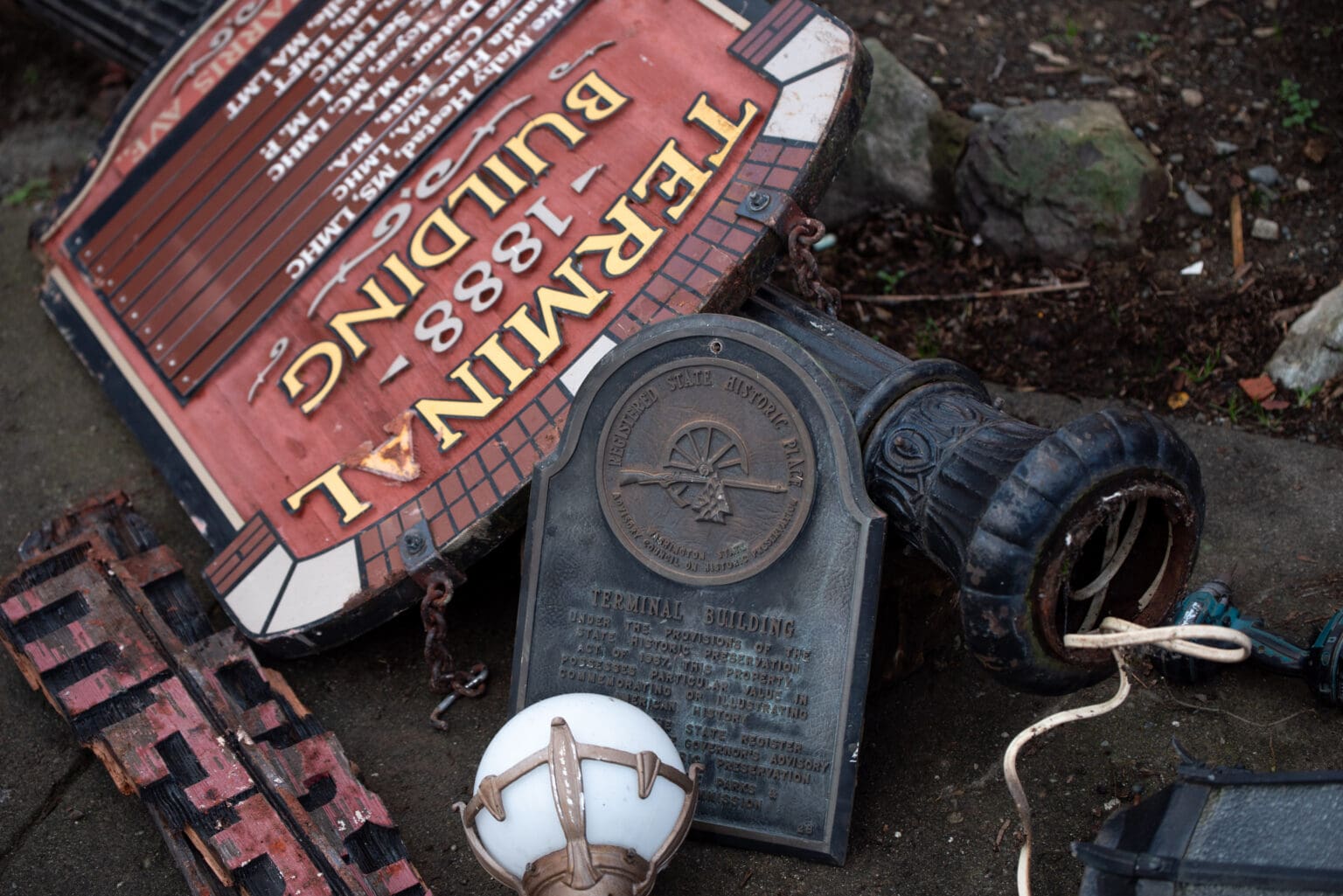The Terminal Building was the oldest surviving commercial structure in Fairhaven until Saturday, when a fire gutted the historic brick building.
The loss is immense. Dozens of people are now out of work, and Nathaniel V. Breaux, the owner of the building’s most recent tenants, Harris Avenue Café and the Old Independent Coffeehouse, is still missing. A statement from his family on Dec. 20 said he was working late in the cafe the night of the fire, and they expect his body to be recovered within the next few days.
The grief of some local residents also extends to the building itself, which supported 135 years of community life: from saloons in pre-prohibition days to the iconic Tony’s Coffee business for 40 years.
Whatcom County Historian Jeff Jewell said the loss of the building, which is in the process of being demolished brick by brick, is catastrophic.
“Historic buildings, they have had generations go through them and you can get a sense of it when you go into an old building,” Jewell said. “You get that feeling of gravitas, like wow, there’s a lot of stories that passed through here.”
The Terminal Building was built between 1888 and 1889, in the time of Fairhaven’s initial boom as a potential railroad terminus. The building has been nearly continuously occupied throughout its existence. According to its nomination form to the National Register of Historic Places Inventory written in 1972, the building was one of the first commercial structures built during the early development of the new townsite of Fairhaven.
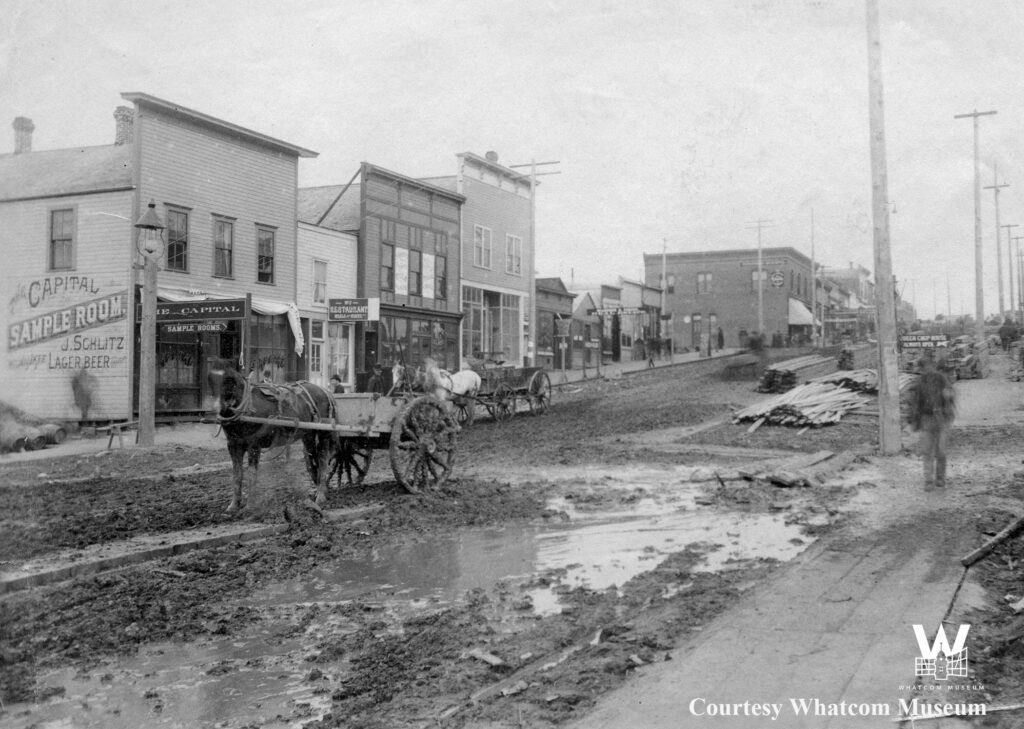
The structure was originally a wood frame construction, but it was expanded in 1889 to add the “veneer of Japanese Star Brick,” according to the nomination form. Gayle Helgoe of Fairhaven History said the bricks for the terminal building originated as ballast to balance loads in sailing ships.
Jewell said the name of the building came from one of two places: it’s either a reference to the dream that Fairhaven would be the terminus of the Great Northern Railway (it went to Seattle instead) or that it was where two electric street passenger railways intersected.
In the early years, the Sideboard Saloon, owned by Denny Butler, was in the corner space — 1101 Harris Ave. The Sideboard Saloon was adjoined with a barbershop owned by George D. Pierce, according to Fairhaven History. Around that time, the 1103 Harris Ave space was W.R. Newman’s Furnisher and Hattier, and then Jarvis & Odell Cigars and Billiards.
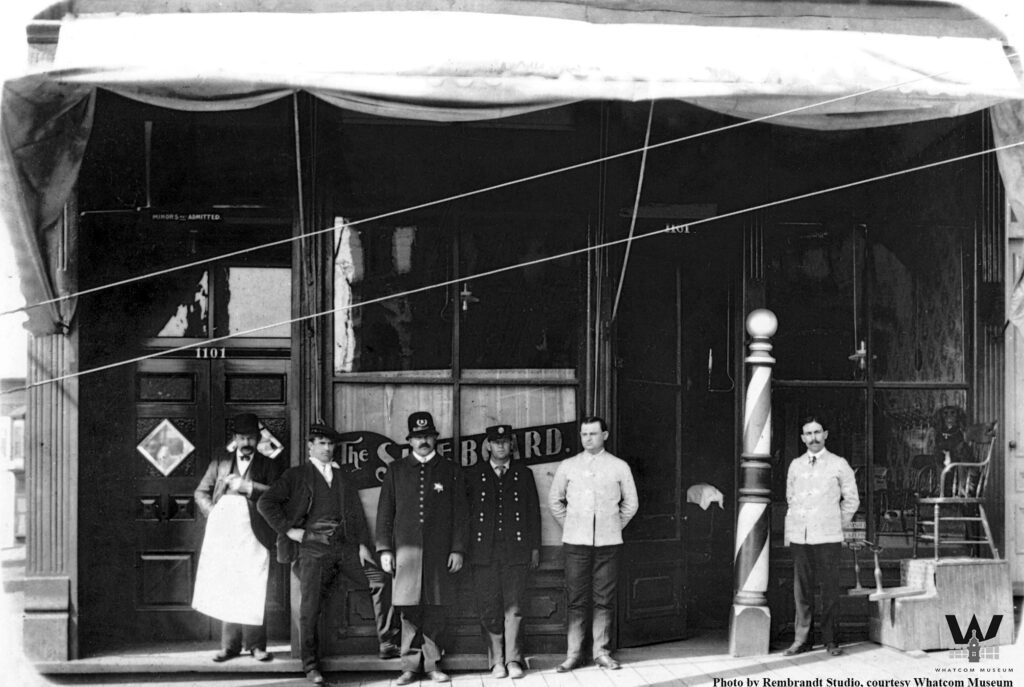
The Sideboard became the Corner Bar in 1907, but then closed in 1910 when Bellingham outlawed saloons.
Helgoe said at the time Sideboard was there, Bellingham was full of saloons, but they closed when the law was enacted. After the saloon closed, different businesses went in and out.
“There were candy ships there, cigar stores, that were sort of substitutes for the former saloon but not quite the same,” Helgoe said. “They didn’t quite attract the same clientele.”
Briefly, in 1915, the 1103 space hosted the Fairhaven Pharmacy, just until 1916 when it relocated to another building in town before settling in its permanent location before closing nearly a century later, in 2015.
Grocery stores came and went, but the building held John Finnegan’s Busy Corner in 1923, which had a popular soda fountain.
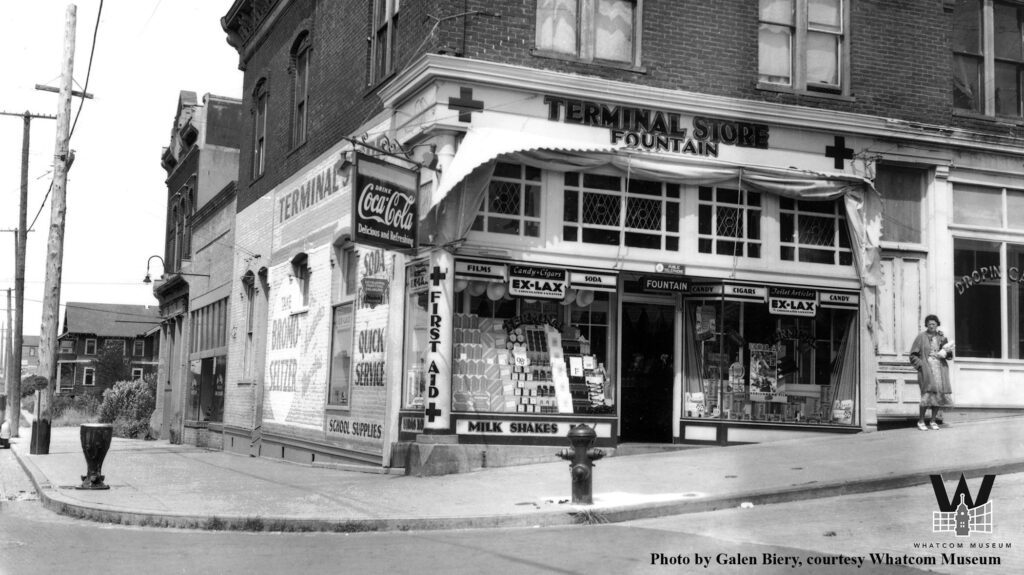
Will Berthiaume’s Terminal Store took over the corner unit of the building in the ’30s and ’40s before Berthiaume walked away from the business in 1950, according to Fairhaven History. In the 1930s, the 1103 space was the Drop-In Café, and in the late ’40s it was the Townsend Club and then in 1953, a barbershop.
In 1971, Tony’s came to town. First, it was Tony Campbell’s Teas & Spices in the 1101 unit. It then became Tony’s Coffee and then in February 2022, with a new owner, changed names to The Old Independent Coffeehouse — still serving Tony’s Coffee.
Fairhaven Bicycle also opened at the same time as Teas and Spices in the 1103 unit. It was then a toy parlor, and in recent years, held the Paradise Cafe, and then became the Harris Street Cafe in 1998.
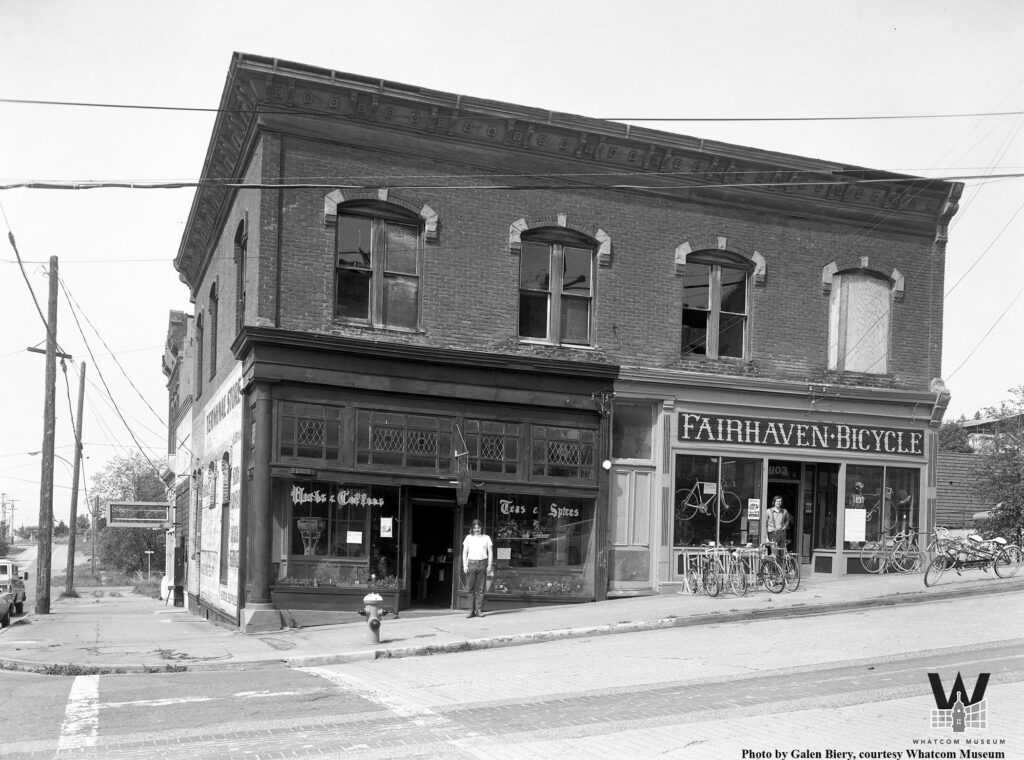
Jewell said Tony’s was a cultural hub in the ’70s, when Fairhaven drew national acclaim as a fair haven for hippies.
“Back in the ’70s, the counterculture discovered Fairhaven as kind of a ruin,” Jewell said. “It was a few old buildings and a lot of empty lots, not a lot going on … [Tony’s] kind of brought back life to Fairhaven, which had been on the decline for years.”
One of the other oldest buildings in Fairhaven is the next-door E. M. Day Building — home to Dirty Dan Harris Steakhouse, which was damaged by water and smoke during the fire. It was constructed in 1890, and has been home to real estate and cigar shops, billiard halls, and since 1974, Dirty Dan’s, named after the townsite’s founder, Daniel J. Harris.
Helgoe went down to the fire Sunday morning. She said seeing the aftermath of the fire brought tears to her eyes.
“The whole thing is just tragic to me,” she said.
Jewell said many local residents cling to strong memories of the Terminal Building.
“We’re all mortal actors here on this stage, and these are the sets, these old buildings create places that we share over time,” he said.
Fairhaven’s history attracts people to it, Jewell said. The old buildings mean something to people.
“We think of history as the past, but people gravitate towards history, it gives them a place in time, and they realize that they are part of something longer than their own lives,” Jewell said. “That’s comforting to them. That’s comforting to me.”
For ways to support those impacted by the fire, see this article.

